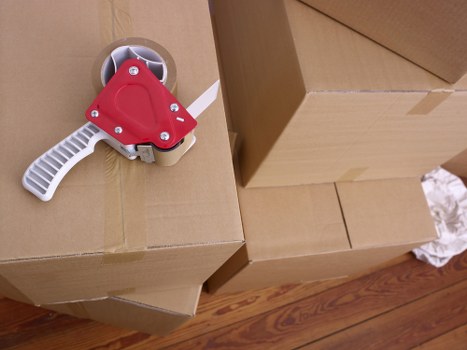Waste Disposal Tower Hamlets: A Comprehensive Guide

Proper waste disposal is crucial for maintaining a clean and healthy environment in Tower Hamlets. As one of London’s most vibrant and densely populated boroughs, managing waste effectively poses unique challenges and opportunities. This guide delves into the various aspects of waste disposal in Tower Hamlets, offering insights into services, regulations, and community initiatives that ensure the area remains sustainable and livable.
Understanding the waste disposal system in Tower Hamlets helps residents and businesses contribute to environmental conservation. From recycling programs to hazardous waste management, the borough has implemented comprehensive strategies to address different types of waste. This article explores these strategies in detail, providing a clear picture of how waste is handled in Tower Hamlets.
With increasing awareness about environmental issues, residents are more engaged in waste management practices. Tower Hamlets encourages participation through educational programs and accessible waste disposal services. By working together, the community can achieve higher recycling rates and reduce the overall environmental footprint.
Overview of Waste Disposal in Tower Hamlets

Tower Hamlets has a well-structured waste disposal system designed to handle the diverse needs of its population. The borough provides various waste collection services, including regular household waste, recycling, and bulky waste collection. Additionally, there are specialized services for hazardous waste, ensuring that dangerous materials are disposed of safely.
The local council plays a pivotal role in managing waste disposal services. They coordinate with private contractors to ensure efficient collection and processing of waste. By adhering to strict guidelines and regulations, Tower Hamlets maintains high standards in waste management, contributing to the borough’s overall cleanliness and environmental health.
Recycling is a significant component of the waste disposal strategy in Tower Hamlets. The council provides designated recycling bins and collection points, making it easy for residents to separate recyclable materials from general waste. This effort not only reduces the amount of waste sent to landfills but also promotes the sustainable use of resources.
The Waste Collection Process

The waste collection process in Tower Hamlets is streamlined to ensure efficiency and reliability. Residents are provided with different types of bins for various waste categories, including general waste, recycling, and compost. Collection schedules are clearly communicated, allowing households to anticipate pick-up days and prepare their waste accordingly.
For businesses and commercial properties, specialized waste collection services are available. These services cater to larger volumes of waste and often include recycling and hazardous waste management. By offering tailored solutions, Tower Hamlets accommodates the diverse needs of its commercial sector while maintaining environmental standards.
Bulky waste, such as furniture and large appliances, is collected periodically. Residents can schedule pickups or drop off items at designated collection points. This service ensures that bulky items are removed responsibly, preventing clutter and potential hazards in residential areas.
Recycling Programs and Initiatives

Recycling is a cornerstone of Tower Hamlets’ waste management strategy. The borough has implemented several programs to encourage residents to recycle more effectively. These include providing separate bins for recyclables, organizing educational campaigns, and partnering with local organizations to promote recycling awareness.
One notable initiative is the introduction of food waste recycling. Residents can now separate their food scraps, which are then composted and used to enrich local green spaces. This not only reduces the amount of waste going to landfills but also supports the community’s green initiatives.
Educational programs in schools and community centers play a vital role in fostering a culture of recycling. By teaching the importance of waste separation and the benefits of recycling, Tower Hamlets ensures that future generations are well-equipped to handle waste responsibly.
Types of Recyclable Materials

Residents of Tower Hamlets can recycle a wide range of materials, each requiring specific handling to ensure they are processed correctly. Common recyclable items include:
- Paper and Cardboard: Newspapers, magazines, cardboard boxes, and office paper.
- Plastics: Bottles, containers, and packaging materials marked with recycling symbols.
- Glass: Bottles and jars, excluding broken glass and ceramics.
- Metals: Aluminium cans, tin cans, and some metal packaging.
- Textiles: Clothing and fabrics, often collected through special drives and facilities.
By separating these materials, residents contribute to the recycling process, ensuring that valuable resources are reused and waste is minimized.
Hazardous Waste Management

Managing hazardous waste is a critical aspect of Tower Hamlets’ waste disposal efforts. Hazardous materials, such as chemicals, batteries, and electronics, require special handling to prevent environmental contamination and health risks. The borough provides designated collection points and special events for residents to safely dispose of these items.
Electronics recycling programs allow residents to dispose of old gadgets responsibly. These programs ensure that electronic waste is processed correctly, recovering valuable materials and safely handling toxic components. Similarly, battery collection points enable the proper disposal of batteries, preventing harmful substances from entering the environment.
Chemical disposal services are available for residents and businesses handling hazardous substances. By providing secure disposal methods, Tower Hamlets minimizes the risks associated with hazardous waste, safeguarding both the community and the environment.
Specialized Collection Services

In addition to regular waste collection, Tower Hamlets offers specialized services to address specific waste disposal needs. These services include:
- Medical Waste Disposal: Secure disposal of medical and pharmaceutical waste from homes and healthcare facilities.
- Construction Debris: Collection and recycling of materials from construction and renovation projects.
- E-Waste Recycling: Dedicated facilities for recycling electronic waste, ensuring safe and efficient processing.
- Battery Collection: Convenient drop-off points for used batteries, preventing environmental pollution.
These specialized services enhance the overall waste management system, catering to the diverse and evolving needs of the Tower Hamlets community.
Regulations and Policies

Tower Hamlets adheres to both local and national regulations governing waste disposal. These regulations ensure that waste management practices align with environmental standards and public health guidelines. The local council continuously updates its policies to reflect changes in legislation and advancements in waste management technologies.
Key regulations include:
- Waste Hierarchy: Prioritizing waste prevention, reuse, recycling, recovery, and disposal in that order.
- Recycling Targets: Setting and striving to meet specific recycling rates to reduce landfill dependency.
- Permits and Licensing: Regulating businesses involved in waste disposal to ensure compliance with safety and environmental standards.
- Public Awareness Campaigns: Promoting responsible waste disposal through education and community engagement.
By following these regulations, Tower Hamlets ensures that waste disposal practices are sustainable, efficient, and safe for its residents and the environment.
Compliance and Enforcement

Compliance with waste disposal regulations is enforced through regular inspections and monitoring by the local council. Businesses and households that fail to adhere to guidelines may face penalties, including fines and mandatory clean-up orders. These measures ensure that waste disposal standards are maintained consistently across Tower Hamlets.
The council also collaborates with environmental agencies to track waste management performance and identify areas for improvement. Transparent reporting and accountability mechanisms help maintain public trust and encourage responsible waste disposal behaviors.
Educational initiatives complement enforcement efforts by raising awareness about the importance of following waste disposal regulations. By understanding the reasons behind these rules, residents are more likely to comply willingly, fostering a culture of environmental responsibility.
Community Initiatives and Programs

Community involvement is essential for effective waste disposal in Tower Hamlets. The borough has launched several initiatives to engage residents and promote sustainable waste management practices. These programs focus on education, accessibility, and collaboration, ensuring that everyone can contribute to a cleaner environment.
One such initiative is the community recycling drive, where local groups organize events to collect and recycle specific types of waste. These drives not only increase recycling rates but also strengthen community bonds as residents work together towards a common goal.
The council also supports school-based programs that educate children about the importance of waste reduction and recycling. By instilling good habits early on, these programs help create a generation of environmentally conscious individuals who will continue to prioritize sustainable practices.
Volunteering and Participation

Volunteering opportunities in waste management allow residents to take an active role in maintaining the borough’s cleanliness. Volunteers can participate in clean-up events, recycling workshops, and educational seminars. These activities not only help manage waste but also foster a sense of community and shared responsibility.
Participation in these programs is encouraged through incentives such as recognition awards and public acknowledgments. By rewarding volunteers, Tower Hamlets motivates more residents to get involved, amplifying the impact of waste disposal efforts.
Furthermore, collaboration with local businesses and organizations enhances the reach and effectiveness of community initiatives. Partnerships ensure that resources are utilized efficiently and that waste management strategies are comprehensive and inclusive.
Environmental Impact of Waste Disposal

Effective waste disposal has a significant impact on the environment, particularly in densely populated areas like Tower Hamlets. Proper management reduces pollution, conserves resources, and minimizes the carbon footprint associated with waste processing and transportation.
Recycling and waste reduction efforts decrease the demand for raw materials, leading to less environmental degradation from mining and manufacturing processes. Additionally, diverting waste from landfills reduces methane emissions, a potent greenhouse gas contributing to climate change.
By implementing sustainable waste disposal practices, Tower Hamlets not only protects the local environment but also contributes to global environmental goals. These efforts are essential for combating climate change and ensuring a healthy planet for future generations.
Health and Safety Benefits

Proper waste disposal directly influences public health and safety in Tower Hamlets. Accumulated waste can lead to the spread of diseases, attract pests, and create hazardous living conditions. By ensuring regular and efficient waste collection, the borough mitigates these risks, maintaining a safe and healthy environment for its residents.
Safe disposal of hazardous materials prevents contamination of soil and water sources, protecting both human health and wildlife. Additionally, reducing the amount of waste in public areas enhances the aesthetic appeal of neighborhoods, contributing to overall well-being and quality of life.
Healthier environments foster happier communities. By prioritizing waste disposal, Tower Hamlets ensures that residents enjoy clean streets, safe public spaces, and a reduced risk of health issues related to poor waste management.
How Residents Can Properly Dispose of Waste

Residents of Tower Hamlets play a vital role in maintaining effective waste disposal. Proper disposal practices not only comply with local regulations but also contribute to environmental sustainability. Here are some guidelines to help residents manage their waste responsibly:
- Separate Recyclables: Use designated bins for paper, plastics, glass, and metals to ensure they are processed correctly.
- Reduce Waste: Minimize single-use items and opt for reusable alternatives to decrease overall waste production.
- Dispose of Hazardous Materials Safely: Take batteries, electronics, and chemicals to designated collection points.
- Participate in Recycling Programs: Engage in community recycling drives and stay informed about collection schedules.
- Properly Dispose of Bulky Items: Schedule pickups or visit drop-off centers for large items like furniture and appliances.
By following these practices, residents can significantly impact the effectiveness of waste disposal in Tower Hamlets, promoting a cleaner and more sustainable community.
Tips for Effective Waste Management at Home

Managing waste effectively at home is the first step towards responsible waste disposal. Here are some practical tips for residents:
- Use Multi-Compartment Bins: Having separate bins for recyclables, compost, and general waste makes sorting easier.
- Compost Organic Waste: Composting food scraps reduces landfill waste and provides nutrient-rich soil for gardens.
- Buy in Bulk: Purchasing items in bulk reduces packaging waste and minimizes the number of containers you need to dispose of.
- Repurpose and Reuse: Find new uses for old items instead of throwing them away. This extends the life of products and reduces waste.
- Stay Informed: Keep up with the latest waste disposal guidelines and participate in local programs.
Implementing these tips can lead to more efficient waste management at home, contributing to the broader goals of Tower Hamlets’ waste disposal system.
Costs and Fees Associated with Waste Disposal

Understanding the costs and fees related to waste disposal is essential for residents and businesses in Tower Hamlets. The local council provides transparent information about waste collection charges, recycling fees, and penalties for non-compliance with disposal regulations.
Household waste collection is typically included in the council tax, covering general and recycling waste services. However, additional fees may apply for bulky waste pickups, especially if they exceed the standard allocation. Residents can find detailed pricing information on the Tower Hamlets council website, ensuring they are aware of any potential costs.
For businesses, waste disposal fees are based on the type and volume of waste generated. Commercial properties may require specialized services, which are priced accordingly. The council offers tailored packages to accommodate different business needs, promoting efficient and cost-effective waste management solutions.
Financial Assistance Programs

To support residents and businesses, Tower Hamlets offers financial assistance programs related to waste disposal. These programs aim to make waste management services more affordable and accessible, especially for low-income households and small businesses.
Subsidies for recycling initiatives and grants for businesses investing in sustainable waste practices are examples of such support. By providing financial incentives, the borough encourages the adoption of environmentally friendly waste disposal methods, benefiting both the community and the environment.
Residents can apply for assistance through the council’s website, where they can find information on eligibility criteria and application processes. These programs ensure that everyone has the opportunity to participate in effective waste disposal, regardless of their financial situation.
10-15 Closest Areas to Tower Hamlets for Waste Disposal

Tower Hamlets is surrounded by several vibrant and diverse areas, each with its own unique features related to waste disposal. Understanding the proximity and specific services offered in these nearby areas can help residents access a wider range of waste management options.
Here are some of the closest areas to Tower Hamlets:
- East End: Just west of Tower Hamlets, the East End benefits from shared recycling facilities and community waste programs.
- Canary Wharf: Known for its commercial hubs, Canary Wharf offers extensive waste disposal services tailored to businesses.
- City of London: Surrounding Tower Hamlets to the west, the City of London provides robust waste management services and specialized recycling centers.
- Hackney: North of Tower Hamlets, Hackney collaborates on joint waste disposal initiatives, enhancing recycling rates.
- Newham: Adjacent to Tower Hamlets, Newham shares resources for hazardous waste disposal and bulk waste collection.
- Islington: Northwest of Tower Hamlets, Islington offers comprehensive recycling programs and community clean-up events.
- Greenwich: Southwest of Tower Hamlets, Greenwich focuses on sustainable waste practices and educational programs.
- Havering: Northeast of Tower Hamlets, Havering provides extensive waste collection services, including seasonal disposal events.
- Waltham Forest: Further north, Waltham Forest partners with Tower Hamlets on regional waste management strategies.
- Southwark: To the south, Southwark offers specialized waste disposal services for electronic and hazardous materials.
- Barking and Dagenham East of Tower Hamlets, Barking and Dagenham has dedicated recycling centers and bulk waste facilities.
- Lewisham: Southwest, Lewisham collaborates on waste reduction programs and shared recycling initiatives.
- Hounslow: West of Tower Hamlets, Hounslow provides accessible waste disposal points and community recycling events.
- Redbridge: Northwest, Redbridge engages in joint educational campaigns on waste management with Tower Hamlets.
- Camden: Further west, Camden offers a variety of waste disposal services, including composting and recycling programs.
Each of these areas contributes to the broader waste management ecosystem in and around Tower Hamlets, ensuring that residents have ample resources and support for effective waste disposal.
Future of Waste Disposal in Tower Hamlets

The future of waste disposal in Tower Hamlets is geared towards increased sustainability and innovation. The borough is exploring new technologies and practices to enhance waste management efficiency and reduce environmental impact.
Upcoming projects include expanding recycling facilities, introducing smart waste collection systems, and promoting zero-waste initiatives. These efforts aim to streamline waste disposal processes, making them more eco-friendly and cost-effective.
Moreover, Tower Hamlets is committed to fostering a circular economy, where waste is minimized, and resources are continuously reused. By embracing these principles, the borough seeks to lead by example in sustainable waste management, inspiring other regions to follow suit.
Innovative Technologies and Practices

Adopting innovative technologies is crucial for the advancement of waste disposal systems in Tower Hamlets. Smart bins with sensor technology, for example, can monitor waste levels and optimize collection routes, reducing operational costs and environmental impact.
Additionally, advanced recycling technologies enable more efficient processing of materials, increasing the rate of recycling and reducing the need for landfill space. These technologies also support the transformation of waste into valuable resources, contributing to a more sustainable economy.
Community-based projects, such as upcycling workshops and repair cafes, encourage residents to repurpose items instead of discarding them. These practices not only reduce waste but also foster creativity and resourcefulness within the community.
Conclusion

Waste disposal in Tower Hamlets is a dynamic and multifaceted system that plays a critical role in maintaining the borough’s cleanliness and environmental health. Through comprehensive services, robust regulations, and active community participation, Tower Hamlets manages its waste effectively, setting a standard for other areas to follow.
Residents and businesses alike are encouraged to engage in responsible waste management practices, contributing to the collective effort of sustainability. As the borough continues to innovate and improve its waste disposal strategies, Tower Hamlets remains committed to creating a cleaner, greener, and more sustainable future for all.
By understanding and participating in the waste disposal system, everyone in Tower Hamlets can make a positive impact on the environment, ensuring that the borough remains a vibrant and healthy place to live and work.
Frequently Asked Questions (FAQs)
1. How often is waste collected in Tower Hamlets?
General waste is typically collected once a week, while recycling is collected on a separate schedule. Bulky waste collection occurs periodically, and residents can check the council’s website for specific collection dates.
2. What items are considered hazardous waste in Tower Hamlets?
Hazardous waste includes chemicals, batteries, electronics, and certain household products. These items should be taken to designated collection points or special waste disposal events.
3. Are there any fees for bulk waste collection?
Yes, there may be additional fees for bulky waste collection if the items exceed the standard allocation. It’s recommended to contact the local council for detailed pricing information.
4. How can I reduce my household waste?
To reduce household waste, consider recycling, composting organic waste, using reusable products, and minimizing single-use items. Implementing these practices can significantly decrease the amount of waste you produce.
5. Where can I find information about recycling guidelines in Tower Hamlets?
Recycling guidelines are available on the Tower Hamlets council website. They provide detailed information on what can be recycled, how to sort waste, and the schedules for collection.